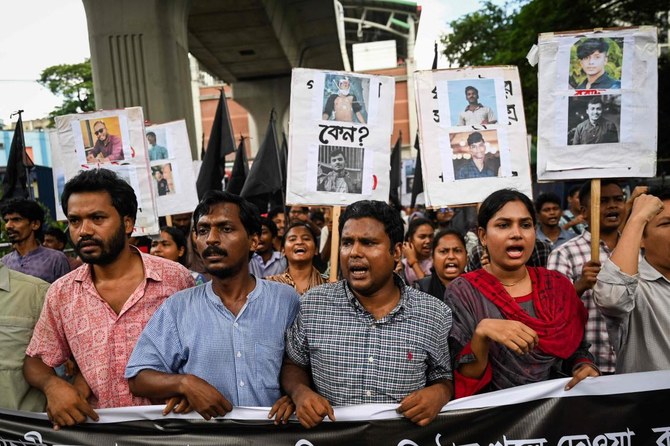
A prominent Bangladeshi student group, Students Against Discrimination, has declared its intention to resume protests unless several of their leaders are released from custody. The group’s announcement follows a week of severe unrest that has resulted in a significant loss of life and widespread disruption across the country.
Last week’s violence, which erupted in response to a controversial quota scheme for government jobs, has claimed at least 205 lives, according to AFP’s tally of police and hospital data. The protests have been among the most significant challenges to Prime Minister Sheikh Hasina’s 15-year rule. In response to the unrest, army patrols and a nationwide curfew have been enforced, with thousands of protesters, including several student leaders, being detained.
Abdul Hannan Masud, a spokesperson for Students Against Discrimination, stated that the group would end its weeklong pause on protests if their leaders are not released. “Nahid Islam and the other detained leaders must be freed, and the cases against them must be dropped,” Masud said during an online briefing late Saturday. He also called for accountability for government ministers and police officers implicated in the deaths of protesters.
Islam, along with two other senior members of the group, was forcibly removed from a hospital in Dhaka on Friday and taken into custody by plainclothes detectives. Islam had been receiving treatment for injuries sustained during a previous detention and expressed fears for his safety. Home Minister Asaduzzaman Khan confirmed that the trio was taken into custody for their protection but did not specify if they had been formally arrested.
Police have since confirmed the detention of two more individuals, with reports indicating a third activist was also taken into custody on Sunday. Prothom Alo, Bangladesh’s largest daily newspaper, reports that at least 9,000 people have been arrested nationwide since the beginning of the unrest.
The demonstrations began earlier this month in response to the reintroduction of a quota system that reserves over half of all government jobs for specific candidates. This decision has been met with widespread criticism from young Bangladeshis facing a dire employment crisis. Critics argue that the quota system is used to favor supporters of the ruling Awami League party.
While the Supreme Court reduced the number of reserved jobs last week, it did not fully meet the protesters’ demands to abolish the quotas entirely. Prime Minister Sheikh Hasina has been in power since 2009 and won her fourth consecutive term in January amid allegations of a vote lacking genuine opposition.
Sources By Agencies


